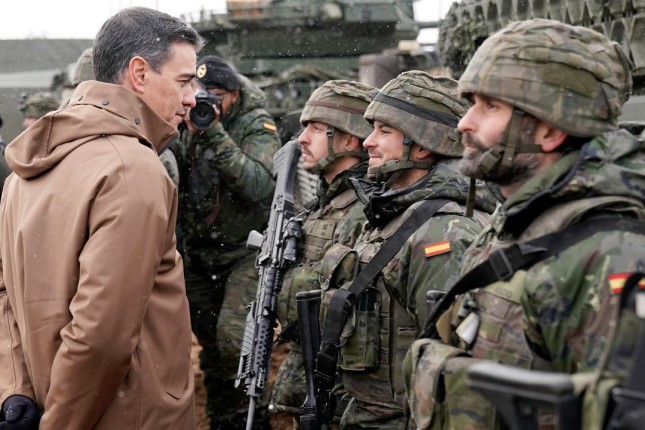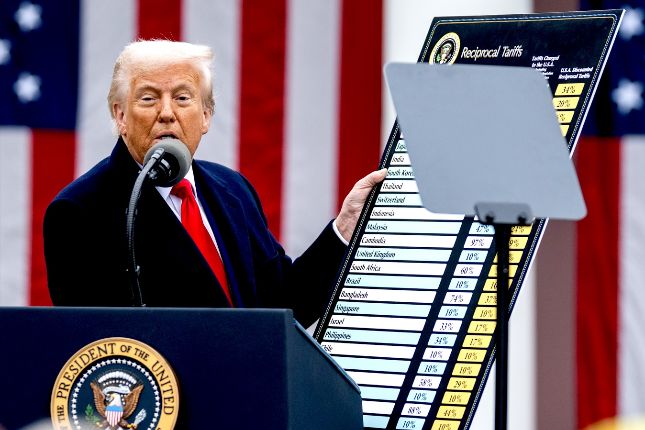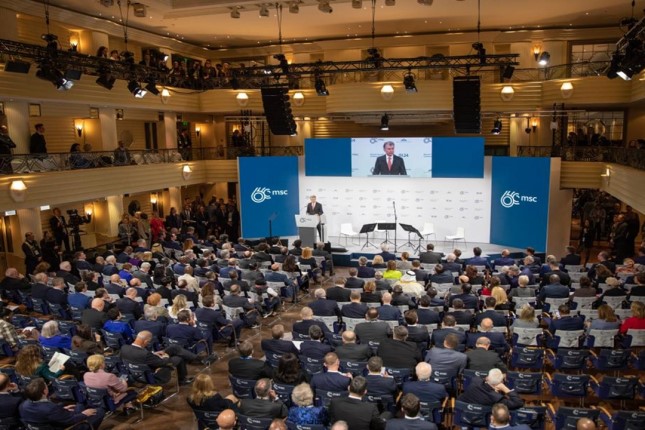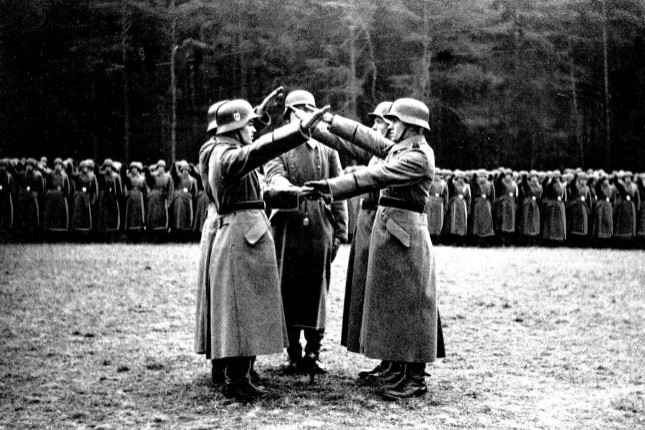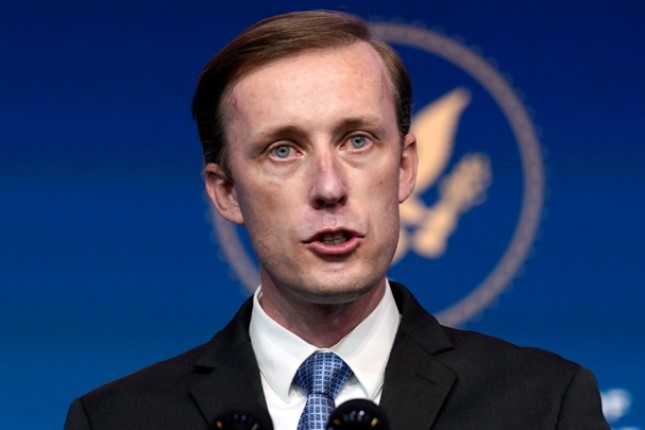In defeat as in office, the PSOE and its pseudo-left coalition partner Podemos adopted an utterly reactionary position. Sánchez said his government had imposed the most urgently necessary attacks on the working class, and that the right-wing Popular Party (PP) and the fascistic Vox party could now be allowed to rule.
He said, “Many socialist [regional] premiers and mayors with impeccable management will be displaced, even despite seeing their support increase. These institutions will become governed by the PP and Vox. The meaning of the vote conveys a message that goes further. I assume responsibility for the results firsthand and I believe it is necessary to give an answer and submit our mandate to the popular will. The government has already carried out the major reforms it committed to.”
The PSOE-Podemos government’s defeat is the product of its policy of imperialist war abroad and class war on workers at home. Sánchez’s “reforms” are brutal attacks on the working class. Its pension cuts raised the retirement age to 67, it imposed below-inflation wage increases on broad layers of workers, and passed a labour law reform slashing workers’ legal protections in the workplace. It imposed the largest military spending increase in Spanish history, to over €27 billion per year.
The PSOE-Podemos’ fascistic indifference to human life was expressed in its profits-over-lives policy in the COVID-19 pandemic, which led to over 160,000 excess deaths and tens of millions of infections; and the barbaric incarceration and murder of migrants, including the infamous massacre of 37 refugees on the borders of Spain’s Melilla enclave in Africa.
The PSOE and Podemos aggressively joined in NATO’s war against Russia in Ukraine, sending rocket launchers, armored vehicles and tanks and training over 850 Ukrainian troops on Spanish soil. Weapons sent by the PSOE-Podemos government went to the neo-Nazi Azov Battalion. This conflict and the rising danger of a direct clash between NATO and Russian forces will be at the centre of Spain’s six-month stint in the rotating presidency of the European Union (EU) in the second half of 2023.
Indeed, as he dissolved his government, Sánchez said: “Our country is preparing to carry out a very important responsibility, the rotating presidency of the Council of the EU. All this requires clarification of Spaniards on the political forces that should lead this phase and the policies to be applied.”
Sánchez’s proposal is to “clarify” who will lead Spanish and EU participation in NATO’s war on Russia. One contestant is the alliance between Vox, the open admirers of General Francisco Franco’s bloody 40-year old regime that crushed the workers in the 1936–1939 Spanish Civil War and sent its Blue Division to assist Hitler’s war on the Soviet Union, and the Popular Party (PP), a party founded by Francoite ministers. Another is the PSOE and Podemos, the discredited descendants of the social-democrats and Stalinists that worked with the Francoites in 1978 to set up Spain’s current parliamentary regime.
The Spanish right celebrated the snap election call. PP leader Alberto Núñez Feijóo said that “the sooner, the better” while Vox leader Santiago Abascal pledged to make “Kicking out Pedro Sánchez to repeal each and every one of his policies” Vox’s political focus.
“We are sad,” blandly declared Podemos spokesperson Pablo Echenique. Apparently in an effort to blame the election fiasco on the PSOE, he said: “If the progressive bloc as a whole had been more courageous when it came to expanding rights… surely we would not have reached this point.” He added that the PSOE-Podemos government “does not solve problems.”
In reality, the PSOE-Podemos government is calling snap elections not to campaign and mobilize voters against the right, but to hand over power to the right so it will pursue policies agreed upon by the entire political establishment.
Whichever party wins the July 2023 elections and becomes a European figurehead for NATO war on Russia will also brutally attack the working class at home. In this, it will work in the direct continuity of the policies of the PSOE-Podemos government. Indeed, Sánchez did not suddenly move the elections up from December to July in order to mobilize the population against the danger of fascism and war, but because it saw an opportunity to hand over power to the right to pursue policies supported by the entire political establishment.
In the elections, the PP won 31.5 percent of the votes against 28.2 percent for the PSOE. Compared to the same elections in 2019, PSOE support fell 1.2 percent, while the PP rose almost 9 percent, securing absolute majorities in the Madrid region and Madrid capital, and taking Aragón, Valencia and the Balearic Islands regions. Vox doubled its vote, going from 47 regional lawmakers to 119. Above all, Podemos suffered an electoral collapse of, from 47 regional lawmakers to 15. It was wiped out in Madrid, Valencia and the Canary Islands.
Sánchez is not campaigning to reverse this defeat in the next elections, but preparing a common war policy with Podemos, the PP and Vox. His first public meeting after announcing the snap elections will be tomorrow’s event organised by the Cercle d'Economia, the Catalan business organization founded in 1958, during the Franco dictatorship, to open Spain to international capital. Central to the discussion according to the meeting’s agenda will be the war in Ukraine.
Its attendees include PP leader and potential future prime minister Feijóo, Podemos-backed interim mayor of Barcelona Ada Colau, Spanish King Felipe VI, EU for foreign affairs commissioner and PSOE official Josep Borrell, senior investigator for the pro-imperialist Chatman House think tank Yu Jie and NATO Deputy Assistant Secretary General for Public Diplomacy Carmen Romero.
The Spanish stock market reacted with what right-wing daily ABC described as “apathy” in the face of Sánchez’s suprise announcement, which was no doubt carefully discussed with the banks in advance. Bankers and investors are confident that whether Sánchez remains or not after July 23, they will continue to reap record profits. Under the PSOE-Podemos government, corporate profits rose to €56 billion in 2022, on revenues of €629 billion. This was a 35 percent increase over 2021...
Photo: Prime Minister of Spain Pedro Sanchez speaks to Spanish troops during his visit to Adazi Military base in Kadaga, Latvia, Tuesday, March. 8, 2022 © AP Photo / Roman Koksarov.
Source: World Socialist Web Site.
